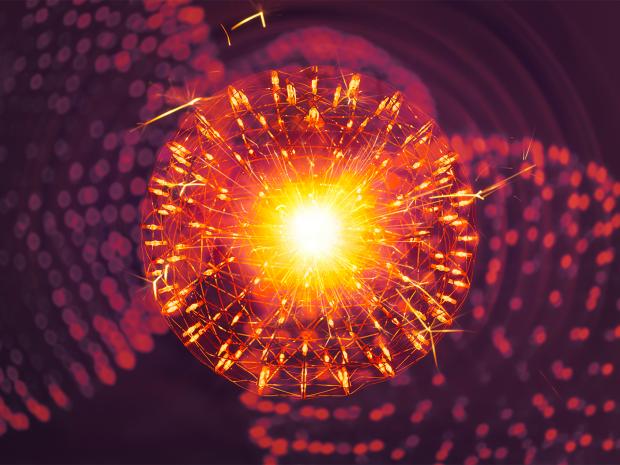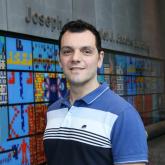- Academics
Applied Physics, B.S.

Applied Physics is devoted to the study and understanding of nature. Considered the most fundamental science, it deals with the constituents, properties, and evolution of the entire universe, from the smallest subatomic particles to the largest galaxies.
At the School of Engineering, our BS in Applied Physics students study physics while working directly alongside engineers. That relationship provides lasting value, as graduates learn to adapt their careers to existing opportunities. You’re encouraged to explore your interests in such fields as entrepreneurship, biophysics, or biomedical instrumentation. Integrated circuit electronics, scanning probe metrology, and computational science are also options. Best of all, your explorations can propel you toward a dual degree, particularly in subjects such as electrical engineering, mechanical engineering, and chemistry.
With a strong foundation in physics, many of our students go on to pursue advanced studies at the master’s level. Many of our graduates seek positions within and beyond the sciences, in fields that include law, writing, and business. Others find a career in disciplines that rely on a solid foundation in physics, be it in industry, government, or education.
Curriculum
You must complete 128 credits, as defined below, to graduate from the School of Engineering with a Bachelor of Science in Applied Physics. The Department of Applied Physics also offers a Minor in Applied Physics.
*If students entered the School of Engineering prior to 2020, please consult the curriculum and typical course schedule for students entering spring 2020 or earlier.
Electives
Physics and Math Electives (20 Credits)
You should select 5 physics elective courses totaling at least 16 credits, and at least 4 credits of math.
Electives in the Humanities and Social Sciences (16 Credits)
You must take 16 elective credits in the humanities and social sciences, preferably with EXPOS-UA 2 as a prerequisite. To gain some breadth and depth of knowledge, it is required that you take courses in at least two disciplines and at least one course at an advanced level.
STEM & Free Electives, Project and Independent Study (18 Credits)
You should take 18 credits of independent study, STEM and free electives. It is strongly recommended that you use 6 of these credits toward a senior project or thesis topic. The program adviser must approve electives selected from other disciplines.
Sample Course Schedule
This typical course schedule provides guidance to students as to how they would normally be expected to complete the degree requirements. Students should be sure to consult their advisor before selecting courses for a particular semester as prerequisites and course offering patterns are the primary considerations affecting registration.
If you entered the School of Engineering prior to 2020, please review the curriculum and typical course schedule for students entering prior to fall 2020.


